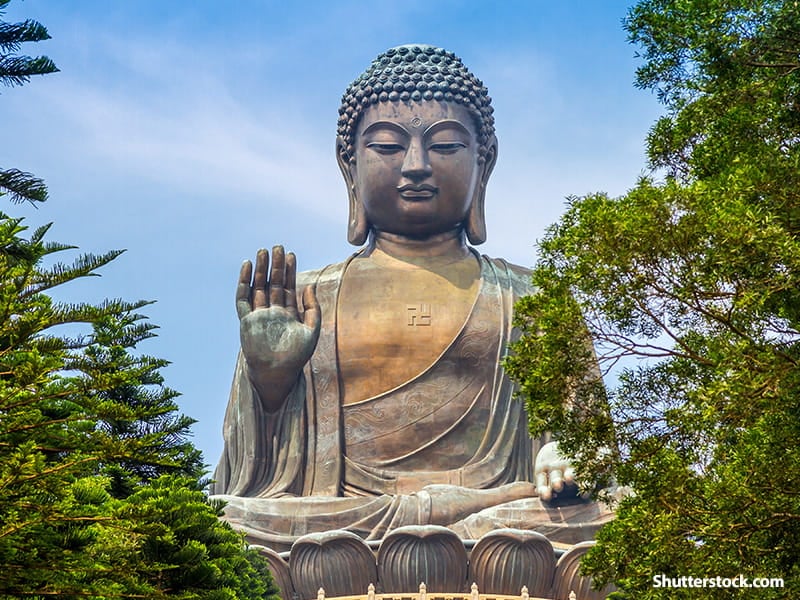He rebuffed international appeals to rescind his order calling the outcry ``noise.''
``The non-Muslim world is united against the Taliban, but we will not be deterred. We will keep our Islamic way,'' Omar said in a statement carried by the Taliban's Bakhtar news agency. ``It has given praise to God that we have destroyed them.''
He did not address the disapproval expressed by fellow Muslim nations, including the Taliban's closest ally Pakistan, which also pleaded for the preservation of the statues.
At the heart of the outcry has been the fate of two giant statues of Buddha, measuring 52.5 and 36 meters (175 and 120 feet) tall, hewn from a cliff face in the third and fifth century.
There have been conflicting reports about the extent of the damage to the statues. An eyewitness report said Taliban soldiers fired antiaircraft weapons at the statues.
The Taliban's Information and Culture Minister Qatradullah Jamal said the head and legs were destroyed. The rest would be destroyed by Monday, he said, but it wasn't certain whether the deadline had been met.
Meanwhile, thousands of Buddhist monks and students paraded through the streets of the Indian and Nepalese capitals on Monday, denouncing the destruction of ancient statues of Buddha by the Taliban.
The rallies, led by Buddhist monks in flowing maroon robes, ended at the United Nations offices in New Delhi and Katmandu.
The Taliban have ignored pleas from an outraged world to stop the destruction of the ancient relics from their pre-Islamic past. The country's rulers have called the statues idolatrous.
In Nepal, where Buddha was born more than 2,500 years ago, both the majority Hindus and Buddhists voiced outrage.
``At a time when there are so many conflicts going in the world, the teachings and wisdom of Buddha provides a solace to the world,'' said the Lumbini Development Trust, which builds and maintains Buddhist shrines. ``It is the responsibility of all the people to conserve ... historic and religious heritage related to Buddha.''
The World Hindu Federation called the destruction a ``deplorable act'' and said it would harm good will between Islam and other religions.
The Taliban have refused to allow anyone to go to Bamiyan, in central Afghanistan, where the two towering statues are located. And Taliban leaders were not available Monday because of the Muslim festival of Eid-ul Adha.
The taller of the two statues is believed to be the world's tallest standing Buddha.
A special UNESCO envoy sent from Paris to try to dissuade the Taliban said he met with the same intransigence during discussions with Taliban officials in southern Kandahar, the Taliban's headquarters.
``I can't say that my mission was successful. . . I could not get the suspension of the order,'' Pierre Lafrance told The Associated Press in neighboring Pakistan.
However he may too late.
At Kabul's largest mosque, the deputy head of Afghanistan's ruling council, Mullah Mohammed Hassan Akhund, told the faithful Monday that the order to destroy all statues was being carried out, the order stands, and no consideration would be given to offers from other countries to purchase the priceless relics.
``Without any fear we are implementing the order. We are destroying the statues,'' he said. ``Islam says it is as bad to sell the Buddhas as it is to keep them. They must be destroyed.''
As well as the mammoth mountain carvings, there are thousands of fragments of Buddhist art in the Kabul Museum.
But the most precious is a 2,000 year-old seated Bhodi Sattva, made of baked clay, said Carla Grissman, who spent several years in Afghanistan documenting and compiling an inventory of the museum collection.
``We are praying that the Bhodi Sattva in not one of the things that has been destroyed,'' she said in a telephone interview from Britain, where she now lives.
``It is one of the most beautiful, ethereal Buddha statues,'' she said. ``It was in superb condition.''
However it would likely have been offensive to hardline Taliban because it depicted a naked torso resplendent in only jewelry.
The Taliban, who rule about 95 percent of Afghanistan, espouse a strict interpretation of Islam, which often runs contrary to interpretations by Islamic scholars elsewhere.

